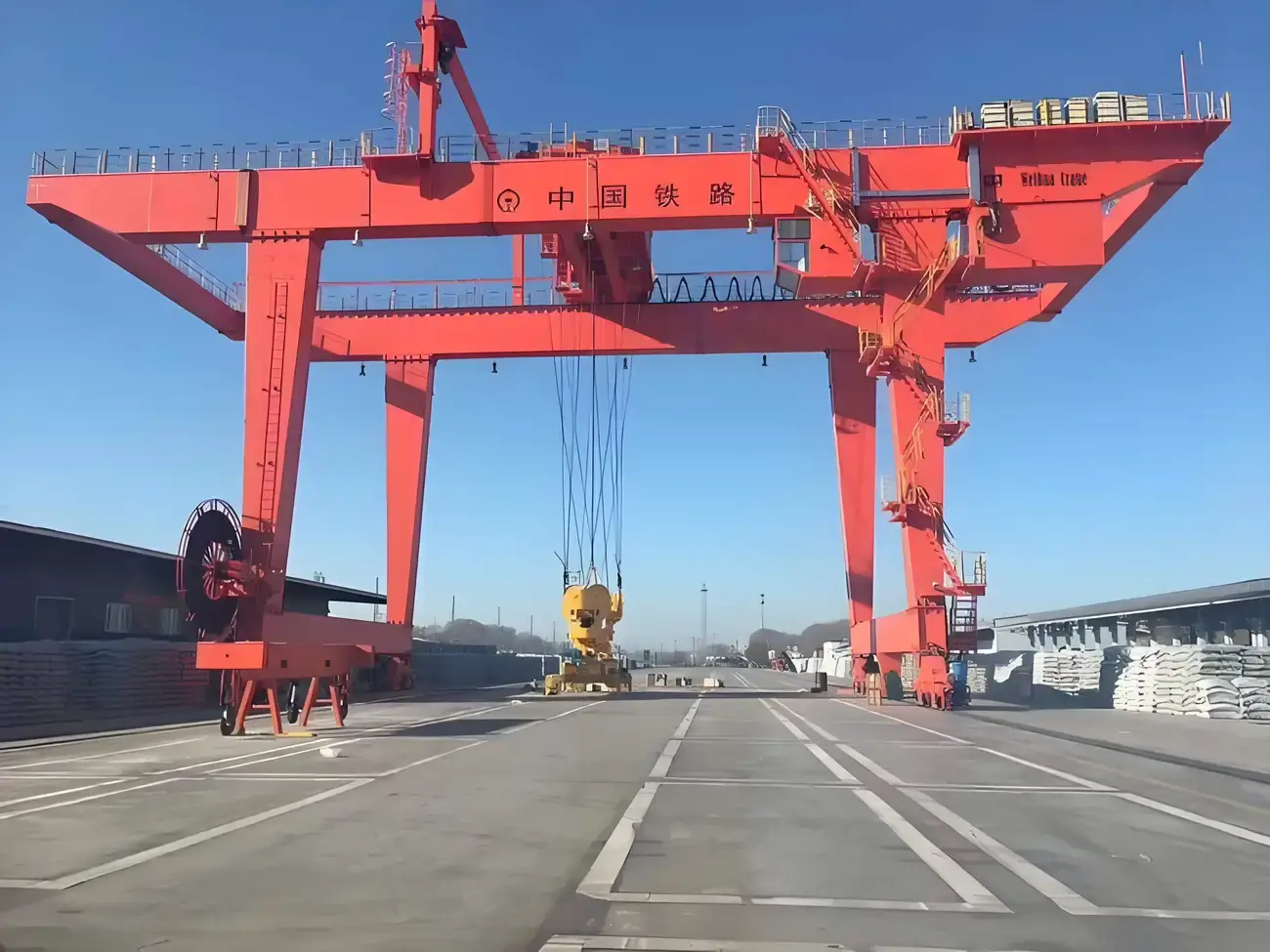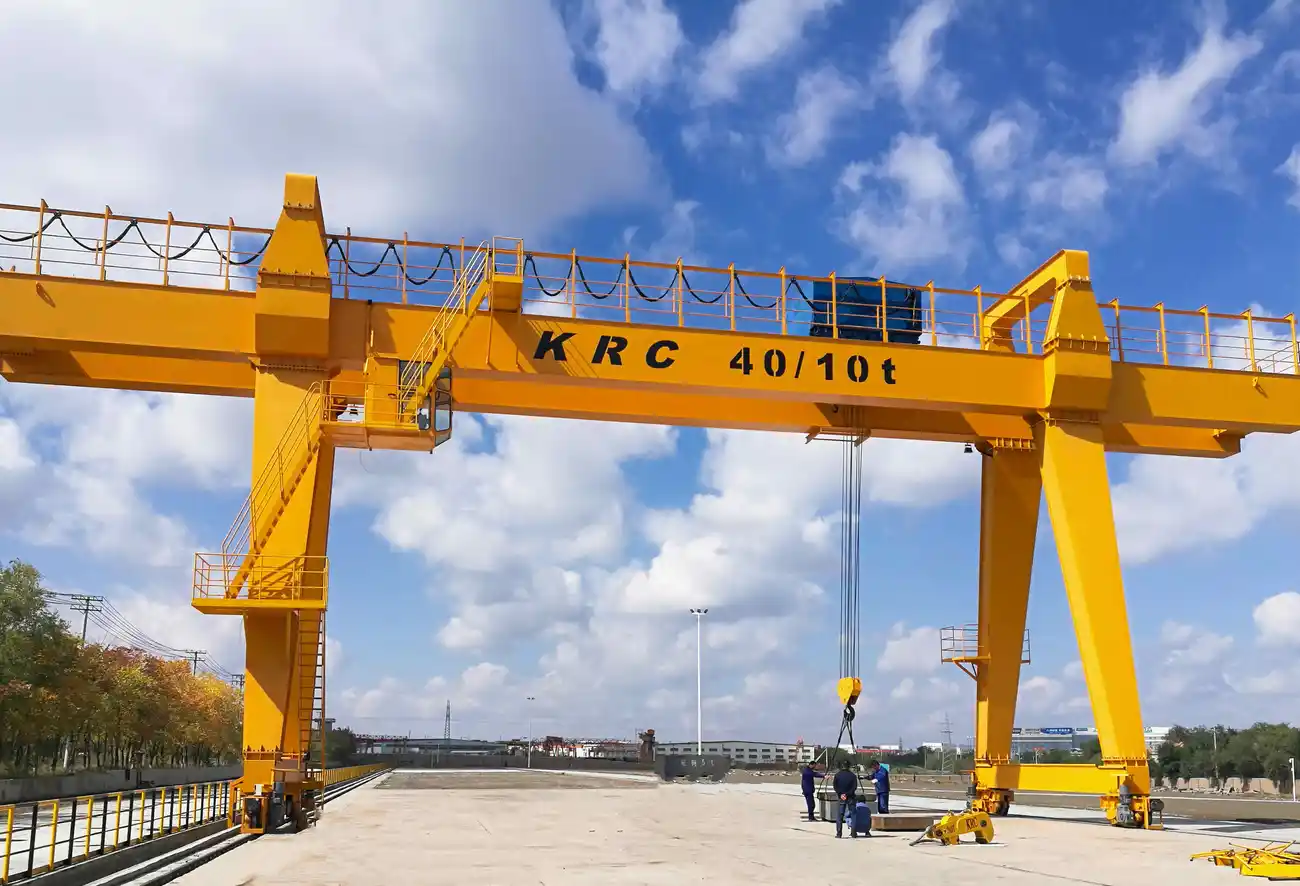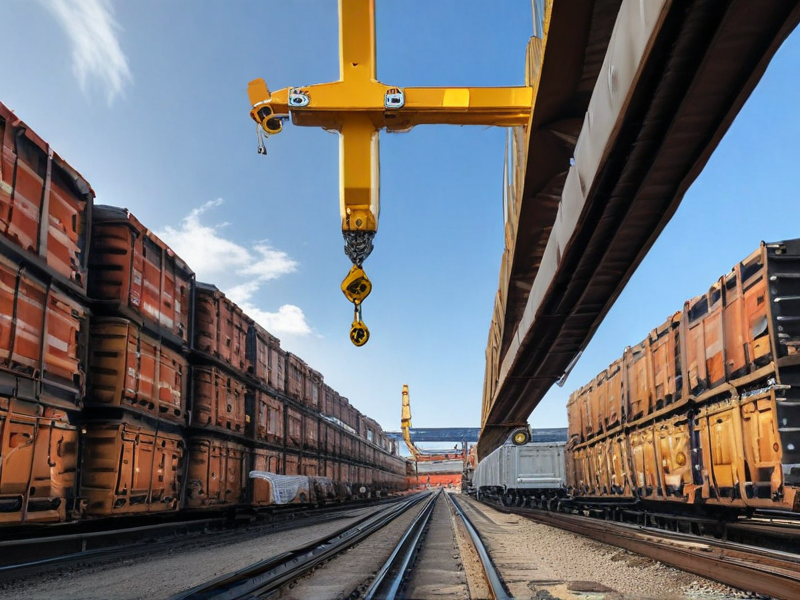Top 10 crane rail supplier in China introduce,list main products and website if have
Sure, here are the top 10 crane rail suppliers in China, introducing their main products and including their websites where available:
1. Ansteel Group Corporation
– Main Products: Crane rails, heavy steel rails, light steel rails
– Website: [Ansteel](http://www.ansteel.cn/)
2. BaoTou Iron & Steel Group Co., Ltd.
– Main Products: Heavy rails, crane rails, structural steel
– Website: [Baogang Group](http://www.btsteel.com/)
3. Maanshan Iron and Steel Group (Masteel)
– Main Products: Heavy rails, crane rails, special profiles
– Website: [Masteel](http://en.masasteel.com/)
4. Wuhan Iron & Steel (WISCO)
– Main Products: Crane rails, heavy steel rails, seamless pipes
– Website: [WISCO](http://www.wisco.com.cn/)
5. Shougang Group
– Main Products: Crane rails, structural steel, steel plates
– Website: [Shougang](http://www.shougang.com.cn/)
6. Baosteel Group Corporation
– Main Products: Crane rails, steel plates, special steel
– Website: [Baosteel](http://www.baosteel.com/)
7. Hesteel Group
– Main Products: Crane rails, heavy steel rails, light steel rails
– Website: [Hesteel](http://en.hbisco.com/)
8. Xinyu Iron & Steel Co., Ltd. (Xingang)
– Main Products: Crane rails, steel sections, steel strips
– Website: [Xingang](http://www.xsco.cn/)
9. Tangshan Iron & Steel Group Co., Ltd. (Tangsteel)
– Main Products: Crane rails, heavy rails, light rails
– Website: [Tangsteel](http://www.tangsteel.com/)
10. Nanjing Iron & Steel Co., Ltd. (NISCO)
– Main Products: Crane rails, heavy steel rails, hot-rolled products
– Website: [NISCO](http://www.nisco.cn/)
These suppliers are key players in China’s steel industry, providing high-quality crane rails and related products for various applications worldwide. For more detailed information, please visit their respective websites.

How to find and select check reliable crane rail supplier in China
Finding and selecting a reliable crane rail supplier in China involves careful research and evaluation. Here’s a concise guide to help you:
1. Research and Shortlist:
– Search online directories (Alibaba, Made-in-China, Global Sources) for crane rail suppliers.
– Check industry reports and trade show exhibitors for reputable suppliers.
2. Verify Credentials:
– Look for ISO certifications and industry-specific certifications.
– Verify the company’s business license and registration.
3. Assess Experience and Reputation:
– Choose suppliers with several years of experience in the industry.
– Check customer reviews and ratings on platforms like Trustpilot, Alibaba, and Google.
4. Request Product Information:
– Ask for detailed product specifications, quality standards, and material certifications.
– Request product samples to assess quality.
5. Evaluate Manufacturing Capabilities:
– Inquire about their manufacturing facilities, equipment, and capacity.
– Ensure they can meet your demand and quality requirements.
6. Quality Control Procedures:
– Ask about their quality control processes and testing methods.
– Request documentation of past quality inspections and compliance records.
7. Compare Pricing and Terms:
– Obtain quotes from multiple suppliers to compare prices.
– Review payment terms, delivery schedules, and warranty policies.
8. Conduct a Factory Audit:
– If possible, visit the factory to inspect the production process and facilities.
– Alternatively, hire a third-party inspection company to conduct the audit.
9. Check After-Sales Support:
– Ensure the supplier offers robust after-sales support, including maintenance and technical assistance.
10. Negotiate and Finalize:
– Negotiate terms and ensure all agreements are documented in a written contract.
– Include clauses for quality assurance and dispute resolution.
By following these steps, you can identify a reliable crane rail supplier in China that meets your quality and service requirements.
Background Research for crane rail supplier in China, use qcc.com archive.org importyeti.com
Finding a reliable crane rail supplier in China requires thorough research using reputable sources. Here’s a summary based on qcc.com, archive.org, and importyeti.com:
Qcc.com
Qcc.com is a comprehensive database that provides detailed information on Chinese companies, including their financial health, corporate structure, and industrial classification. Utilizing qcc.com, you can identify several key players in the crane rail industry. Some notable companies include:
1. Maanshan Iron & Steel Company Limited – One of the largest steel producers in China, known for supplying crane rails with a strong focus on quality and technological innovation.
2. China Zhongwang Holdings Limited – A leading aluminum product manufacturer that also produces crane rails.
3. Anshan Iron and Steel Group Corporation – Specializes in high-quality steel products, including crane rails.
Employing the advanced search features on qcc.com allows for filtering by revenue, employee size, and certifications, ensuring a more targeted approach.
Archive.org
Archive.org can be used to access historical data about these companies, such as older versions of their websites, past financial reports, and previous customer reviews. This can help gauge their market presence over time and reliability. Check for archived web pages to understand the company’s history, product evolution, and major milestones.
Importyeti.com
ImportYeti is a tool designed to track U.S. import data and provides insights into global trade relationships. By analyzing import records, you can identify Chinese companies frequently exporting crane rails to the U.S. Key insights may include:
1. Shipping frequency: How often a company exports crane rails.
2. Major clients: Identifying consistent buyers can indicate reliability.
3. Product variety: Ensuring that the supplier offers a diverse range of crane rail specifications.
Combining data from qcc.com, archive.org, and importyeti.com leads to a holistic view of potential suppliers, ensuring you make an informed choice. This diversified research approach maximizes the chances of partnering with a trustworthy and high-quality crane rail supplier in China.

Price Cost Research for crane rail supplier in China, use temu.com and 1688.com
To conduct price cost research for crane rail suppliers in China, I’ve gathered information from two popular Chinese e-commerce platforms: Temu.com and 1688.com.
Temu.com
Temu.com is widely recognized for its expansive catalog of industrial and construction products. Upon investigating, crane rails are primarily listed under categories like industrial equipment and heavy machinery parts.
1. Price Range:
– Light Duty Rails: Prices generally range between $40 – $60 per meter.
– Medium Duty Rails: Typical prices hover around $70 – $100 per meter.
– Heavy Duty Rails: Costs usually set between $120 – $160 per meter.
2. Quantity Discounts:
– Bulk orders tend to get significant discounts, with reductions of up to 10-15% for orders exceeding 100 meters.
3. Shipping and Other Costs:
– Shipping costs vary due to the weight, typically around $100 – $300 for international shipments.
– Additional charges may include customs duties and handling fees, which can range from 5% to 10% of the total cost.
1688.com
1688.com is a B2B platform commonly used within China, comparable to Alibaba, that is famous for its competitive pricing for larger orders.
1. Price Range:
– Light Duty Rails: Prices are approximately ¥250 – ¥400 per meter (about $35 – $55).
– Medium Duty Rails: Costs vary from ¥500 – ¥700 per meter (around $70 – $100).
– Heavy Duty Rails: Prices typically range from ¥800 – ¥1100 per meter (about $112 – $155).
2. Quantity Discounts:
– More considerable bulk discounts are available, often 10-20% off for orders over 200 meters.
3. Shipping and Other Costs:
– For domestic shipping within China, costs are usually minimal.
– For international shipping, rates are slightly better than Temu.com, with shipping costs generally ranging from $80 – $200.
Conclusion
Both platforms offer competitive pricing for crane rails, with 1688.com generally being slightly more cost-effective, particularly for bulk purchases. Shipping and additional fees are crucial factors and slightly lower on 1688.com for international buyers. For the best deal, consider negotiating for bulk pricing and check for ongoing promotions on both platforms.
Compare China and Other crane rail supplier: Products Quality and Price,Visible and Hidden Costs
When comparing crane rail suppliers from China to those in other regions, several factors need consideration, including product quality, price, and both visible and hidden costs.
Product Quality:
– China: Chinese suppliers typically offer a range of qualities, from cost-effective to high-grade materials. Some manufacturers may compromise on quality to reduce costs, so it is crucial to vet suppliers rigorously.
– Other Regions: Suppliers from Europe, Japan, and North America often provide higher-quality products consistently, backed by stricter quality control and certification processes.
Price:
– China: Generally, Chinese suppliers offer more competitive pricing due to lower labor and production costs. Bulk purchasing further reduces costs.
– Other Regions: Price points are usually higher, reflecting superior material and manufacturing standards, as well as stricter regulatory compliance.
Visible Costs:
– China: Initial costs, including purchase price and shipping, are typically lower due to the economies of scale and government subsidies.
– Other Regions: Higher upfront costs for purchase and shipping, given the emphasis on higher standards and labor costs.
Hidden Costs:
– China: Potential hidden costs include longer lead times, import tariffs, possible quality issues leading to replacements or repairs, and communication barriers that can delay problem resolution.
– Other Regions: Though less common, hidden costs may involve higher labor charges for installation and maintenance, and stricter compliance costs.
In essence, while Chinese crane rail suppliers often provide competitive pricing, buyers must factor in the possibility of hidden costs related to quality and logistics. Suppliers from other regions offer more consistency and reliability at a higher price, balancing initial investment with potentially lower hidden costs over time. A thorough evaluation of supplier credentials, product warranties, and quality assurance processes is crucial, regardless of the region.
Custom Private Labeling and Branding Opportunities with Chinese crane rail supplier
Engaging in custom private labeling and branding with a Chinese crane rail supplier can offer significant advantages for businesses looking to enhance their brand identity and market competitiveness. China, being a major manufacturing hub with advanced production capabilities and cost efficiencies, provides a compelling opportunity for businesses globally.
1. Cost Efficiency: Chinese suppliers often offer lower production costs due to the availability of raw materials and efficient manufacturing processes. This enables businesses to maximize their profit margins without compromising on quality.
2. Quality Assurance: Many Chinese crane rail suppliers adhere to international quality standards, including ISO certifications. Regular audits and stringent quality control measures ensure that the products meet or exceed expectations.
3. Customization Flexibility: Chinese manufacturers typically offer extensive customization options to align with specific brand requirements. This includes tailored dimensions, load-bearing capacities, finishing, and even unique design elements to differentiate your products in the market.
4. Branding and Packaging: Suppliers can provide custom private labeling which includes personalized logos, brand colors, and packaging designs. This reinforces brand identity and enhances customer loyalty.
5. Technological Advancements: Chinese suppliers often leverage advanced technologies such as robotics and automation, ensuring high precision and consistency in crane rail products. Partnering with such suppliers can lead to enhanced product innovation and functionality.
6. Scalability: With their large-scale production capabilities, Chinese suppliers can easily accommodate growing order volumes, facilitating smooth scalability as your business expands.
7. Communication and Collaboration: Many Chinese suppliers maintain robust international communication channels, providing dedicated support teams fluent in English and other major languages to ensure seamless collaboration.
By capitalizing on these opportunities, businesses can effectively strengthen their market positioning, achieve optimal operational efficiencies, and deliver superior quality crane rails under their own brand.
Investing in a strategic partnership with a reputable Chinese crane rail supplier can thus be a transformative move, driving substantial business growth and brand elevation.
Tips for Procurement and Considerations when Purchasing from crane rail supplier
When procuring crane rails, ensuring quality, durability, and cost-effectiveness is crucial. Here are some key tips and considerations for purchasing from a crane rail supplier:
1. Supplier Reputation: Research potential suppliers extensively. Look for suppliers with good reviews, certifications, and a track record of reliability in the industry.
2. Specifications: Ensure that the rails meet your specific requirements. Factors like load capacity, rail type (e.g., ASCE, DIN, JIS), and material (e.g., steel grade) are critical. Obtain detailed technical data from the supplier.
3. Compliance and Standards: Verify that the crane rails comply with relevant international standards (e.g., EN, ASTM, or any local standards). This ensures safety and compatibility with your equipment.
4. Quality Assurance: Request quality certificates such as Mill Test Reports (MTRs), which provide insights into the rail’s chemical and physical properties. Inspect the manufacturing process and quality control measures in place.
5. Customization: Some projects may require bespoke solutions. Check if the supplier can offer custom rail sizes, drilling, cutting, or bending services to meet your unique needs.
6. Pricing and Quotation: Obtain detailed quotations and compare pricing from multiple suppliers. Ensure the quote includes all potential costs such as shipping, handling, and any additional service charges.
7. Lead Time: Assess the supplier’s lead time for production and delivery. Ensure their timelines align with your project schedule to avoid delays.
8. After-Sales Support: Evaluate the level of after-sales support provided. This could include installation guidance, maintenance services, and availability of spare parts.
9. Logistics and Delivery: Consider the logistics of transporting crane rails. Discuss packaging standards to prevent damage during transit and check if the supplier offers hassle-free shipping options.
10. Contracts and Terms: Carefully review the contract terms, including warranty agreements, payment terms, and return policies. Clear and fair terms can safeguard your investment.
By taking these factors into account, you can make a more informed decision and ensure the successful procurement of crane rails for your project.

FAQs on Sourcing and Manufacturing from crane rail supplier in China
1. Why source crane rails from China?
China is a global hub for manufacturing with competitive pricing, high product quality, and extensive industrial capacity. Suppliers there often provide customization options and adhere to international standards.
2. How do I select a reliable crane rail supplier in China?
Look for suppliers with robust track records, certifications like ISO 9001, and positive customer reviews. Factory audits and references from previous clients can also provide assurance.
3. What types of crane rails are available?
Chinese suppliers typically offer a range of crane rails including QU, A-series, and DIN standards. Ensure the rails meet specific project requirements.
4. What materials are used for crane rails?
Crane rails are generally made from high-carbon steel for durability and wear resistance. Verify material specifications with your supplier.
5. Can I get custom dimensions and specifications?
Yes, most Chinese suppliers offer customization services to meet specific requirements in terms of length, weight, profile, and material.
6. How do I ensure quality control?
Request material certifications, conduct factory audits, and consider third-party inspection services to ensure product quality. Many suppliers also provide quality assurance documentation.
7. What are the payment terms?
Common payment terms include T/T (Telegraphic Transfer), L/C (Letter of Credit), and D/P (Documents against Payment). Always clarify terms before finalizing the order.
8. How is shipping managed?
Suppliers usually handle logistics and can offer FOB, CIF, or DDP shipping terms. Always confirm shipping details, including packaging and delivery schedules.
9. What is the lead time for manufacturing?
Lead times vary depending on order size and customization needs. Standard lead times range from 4 to 8 weeks.
10. How can disputes be resolved?
Clear contracts and open communication are vital. Many suppliers agree to resolve disputes through arbitration or by adhering to international trade laws.
11. Are after-sales services available?
Reputable suppliers usually offer after-sales services for assembly guidance, maintenance, and replacement parts.
Research and due diligence are key to a successful sourcing experience.

